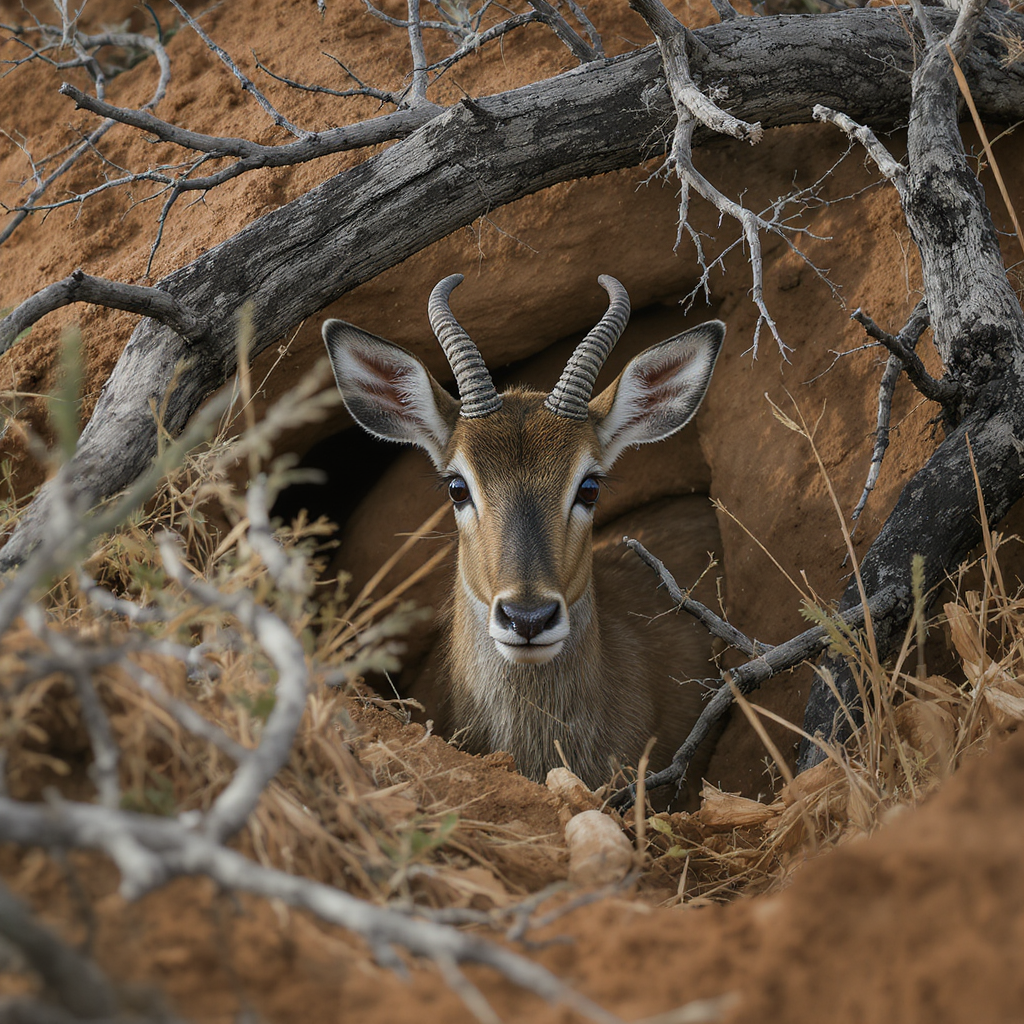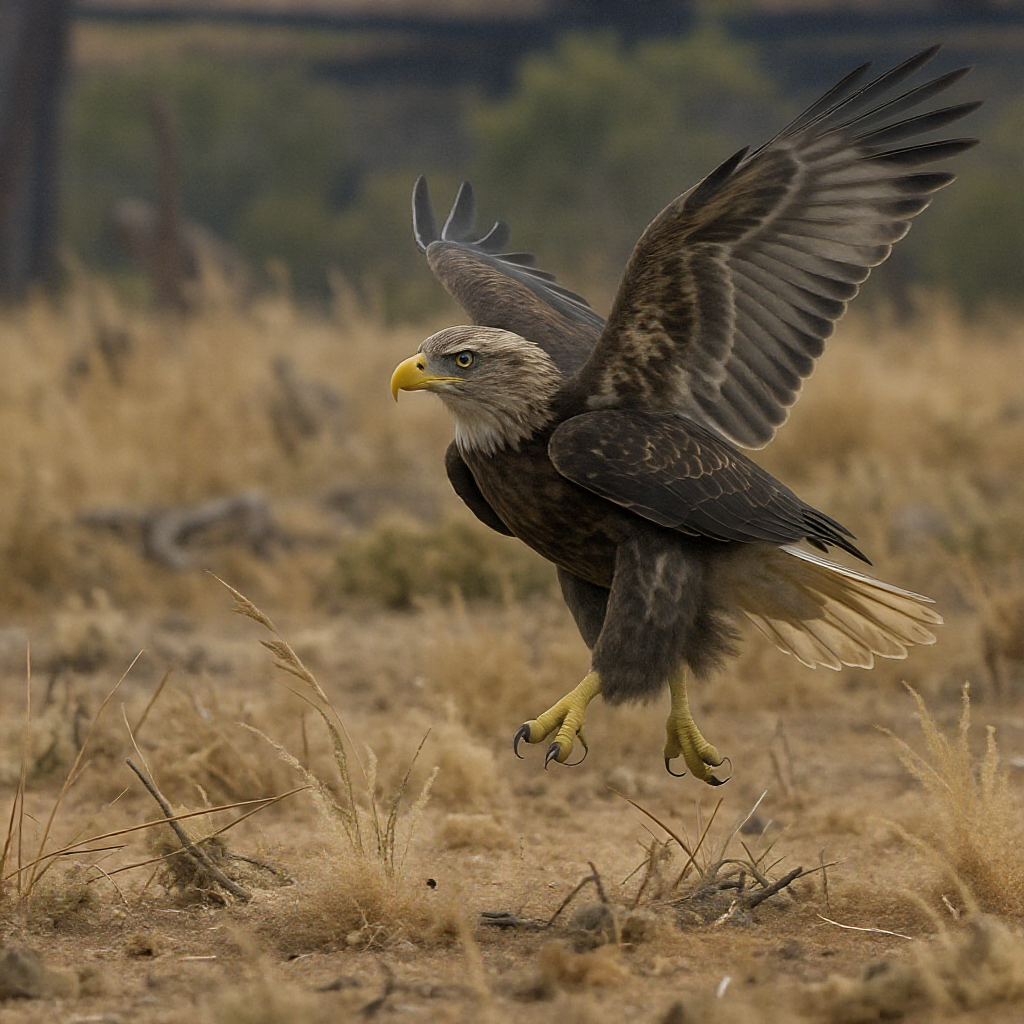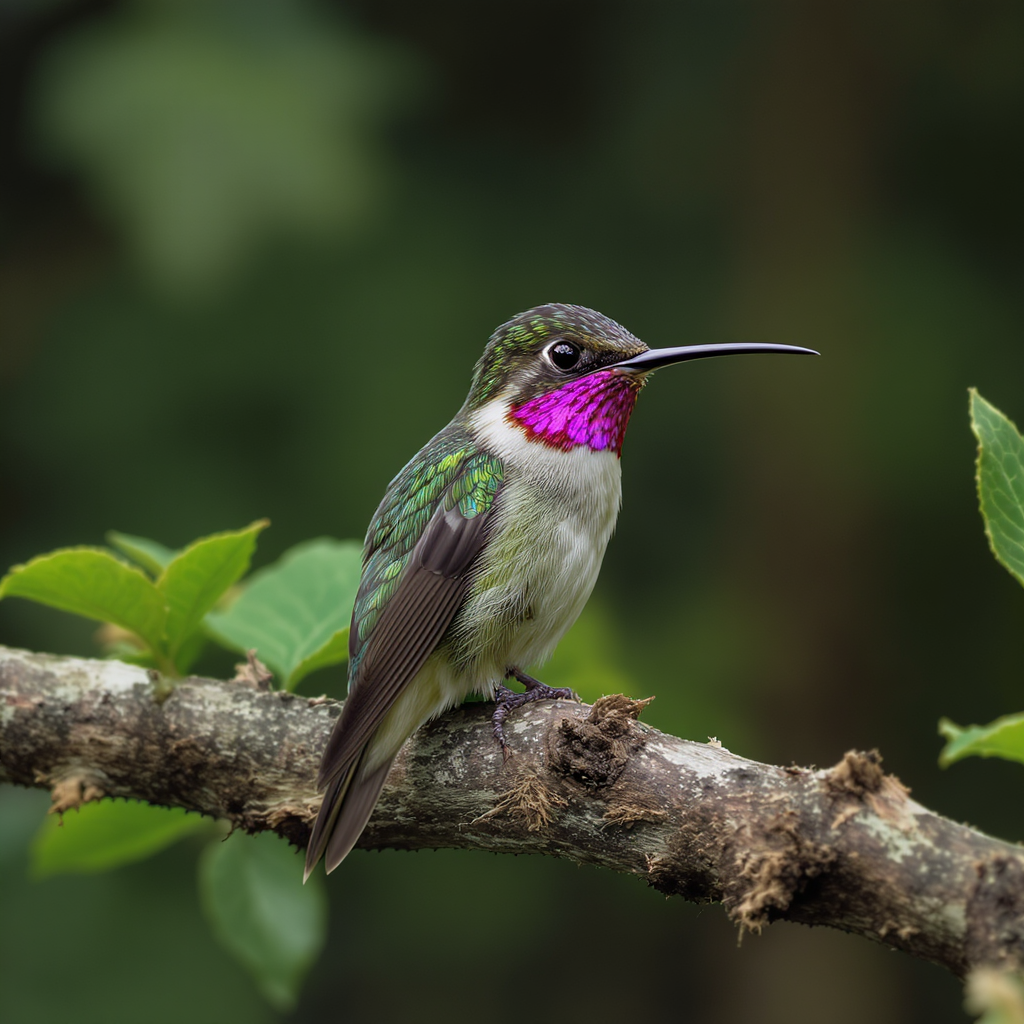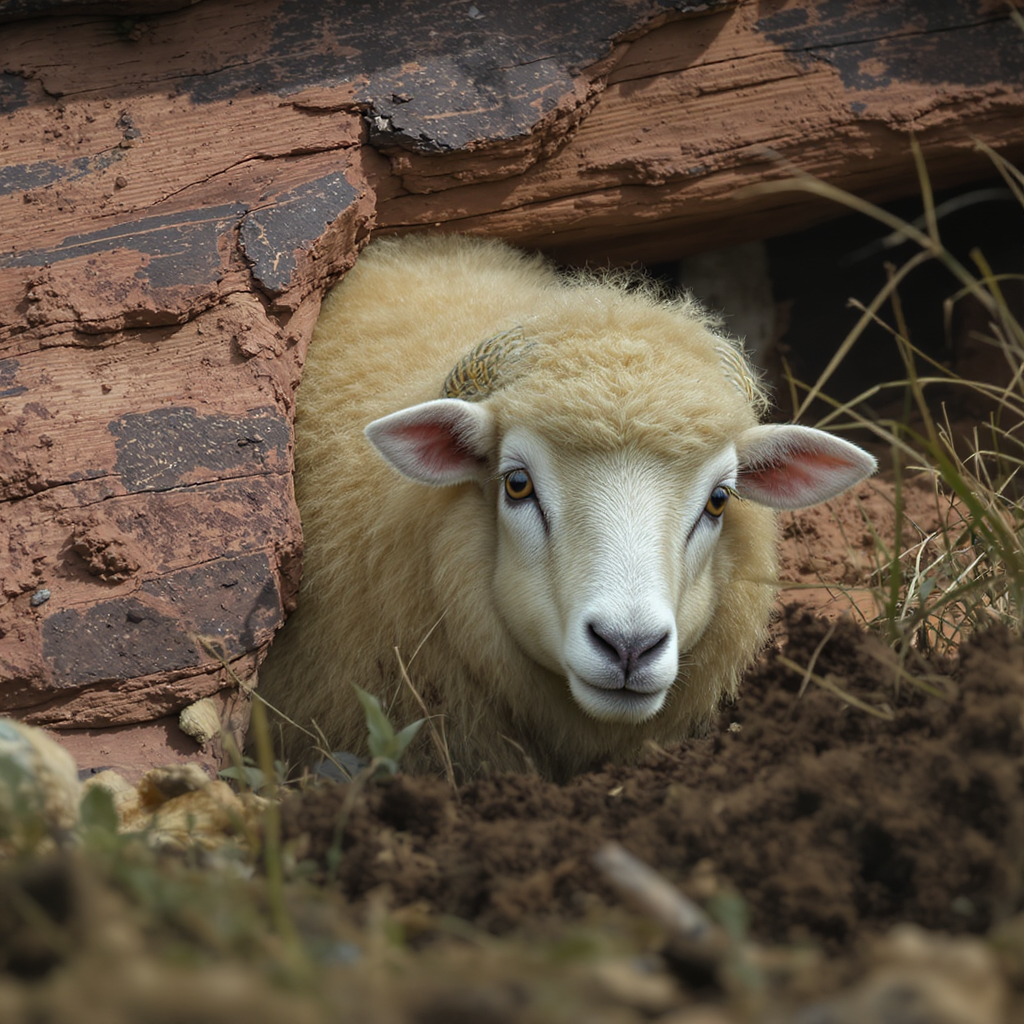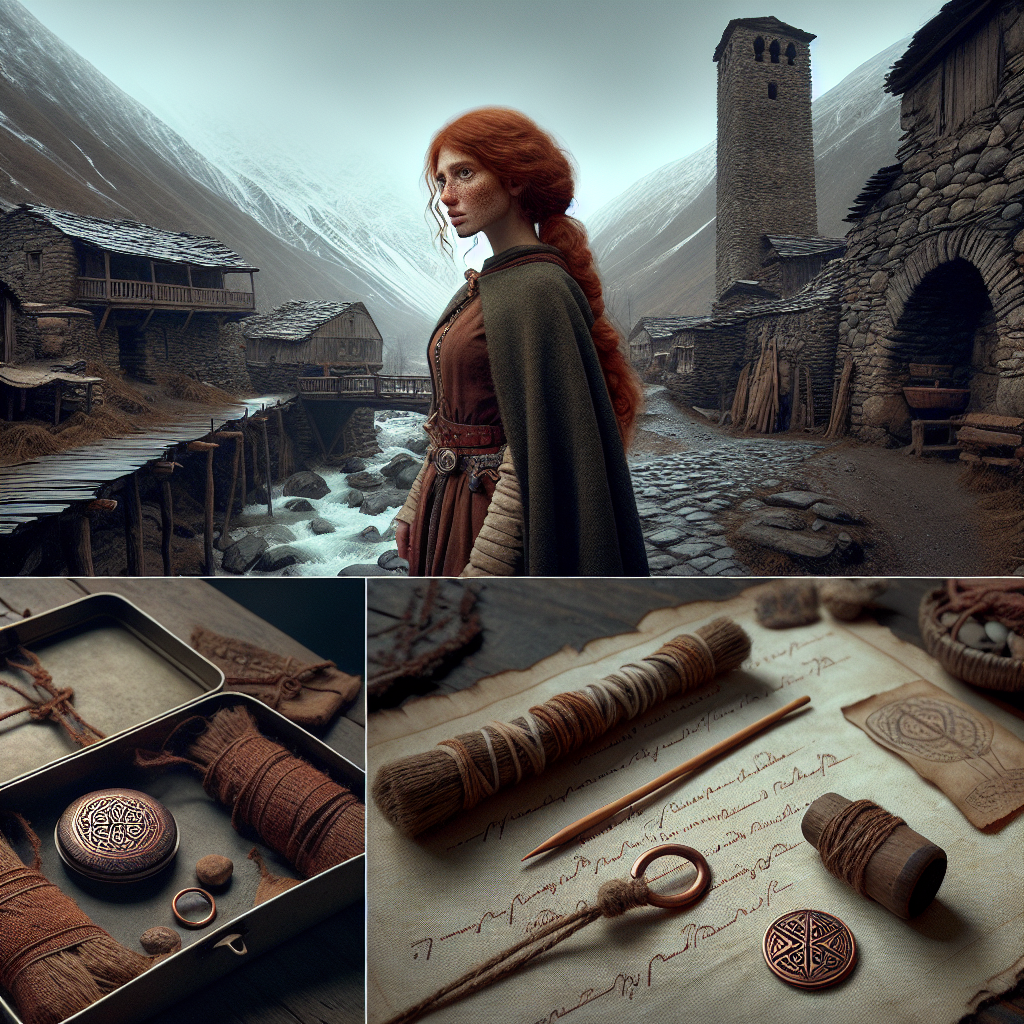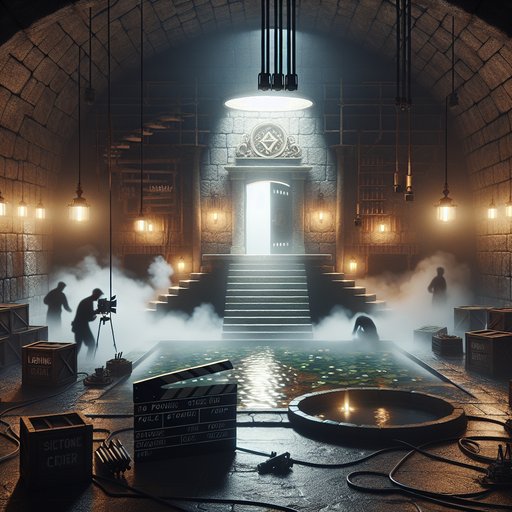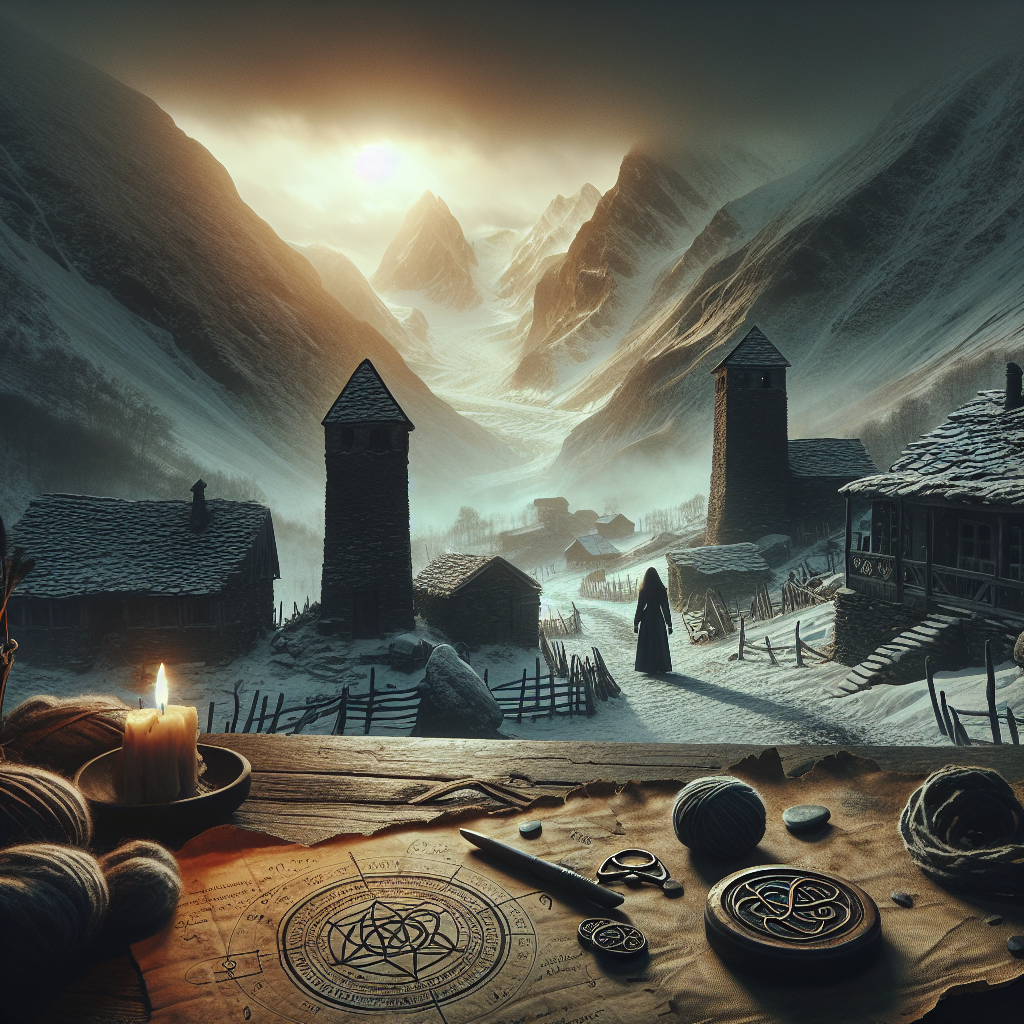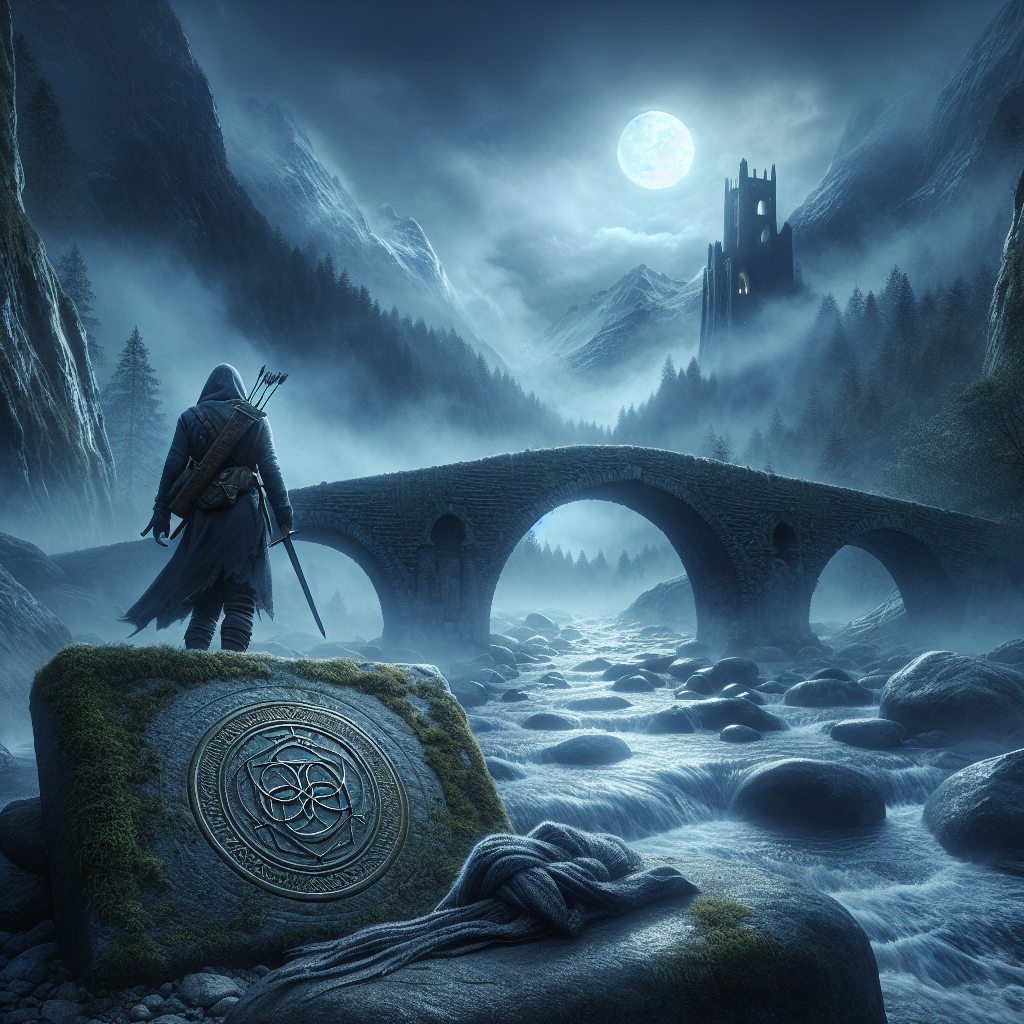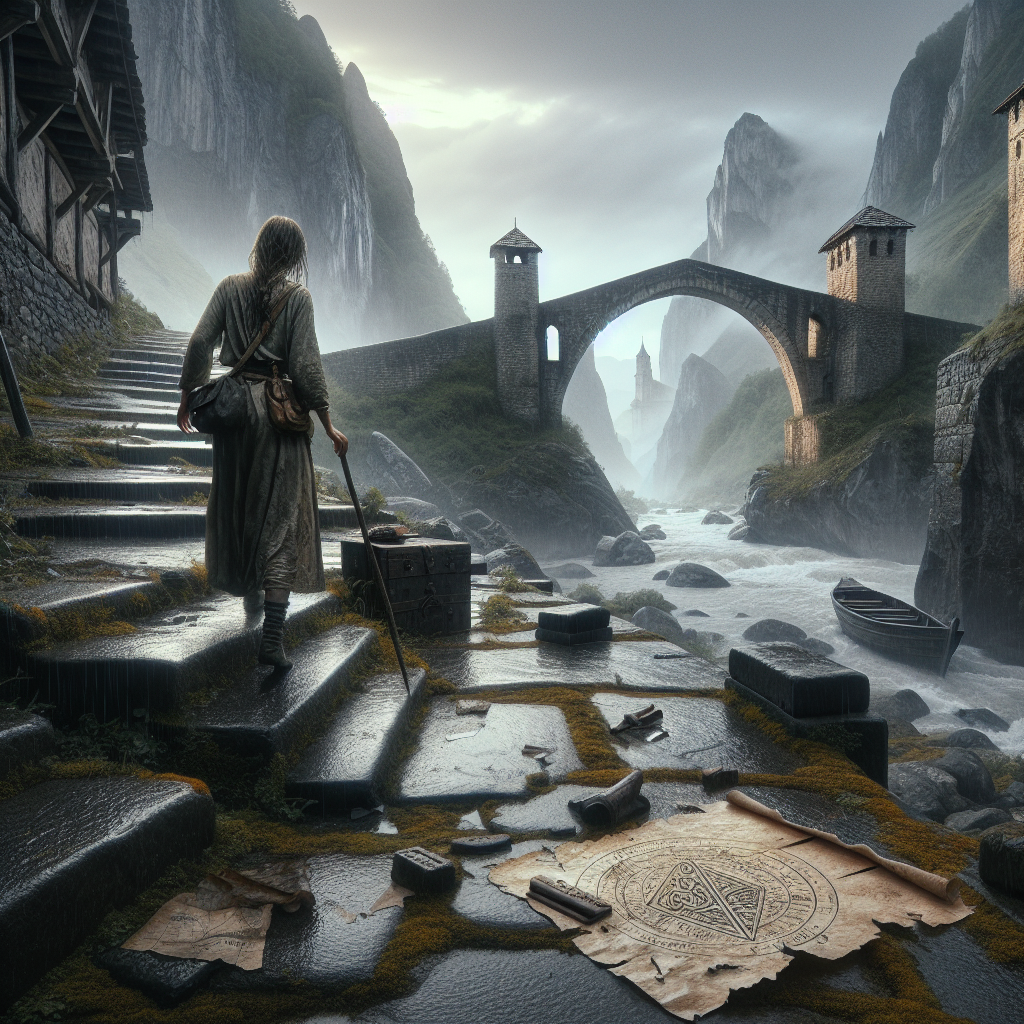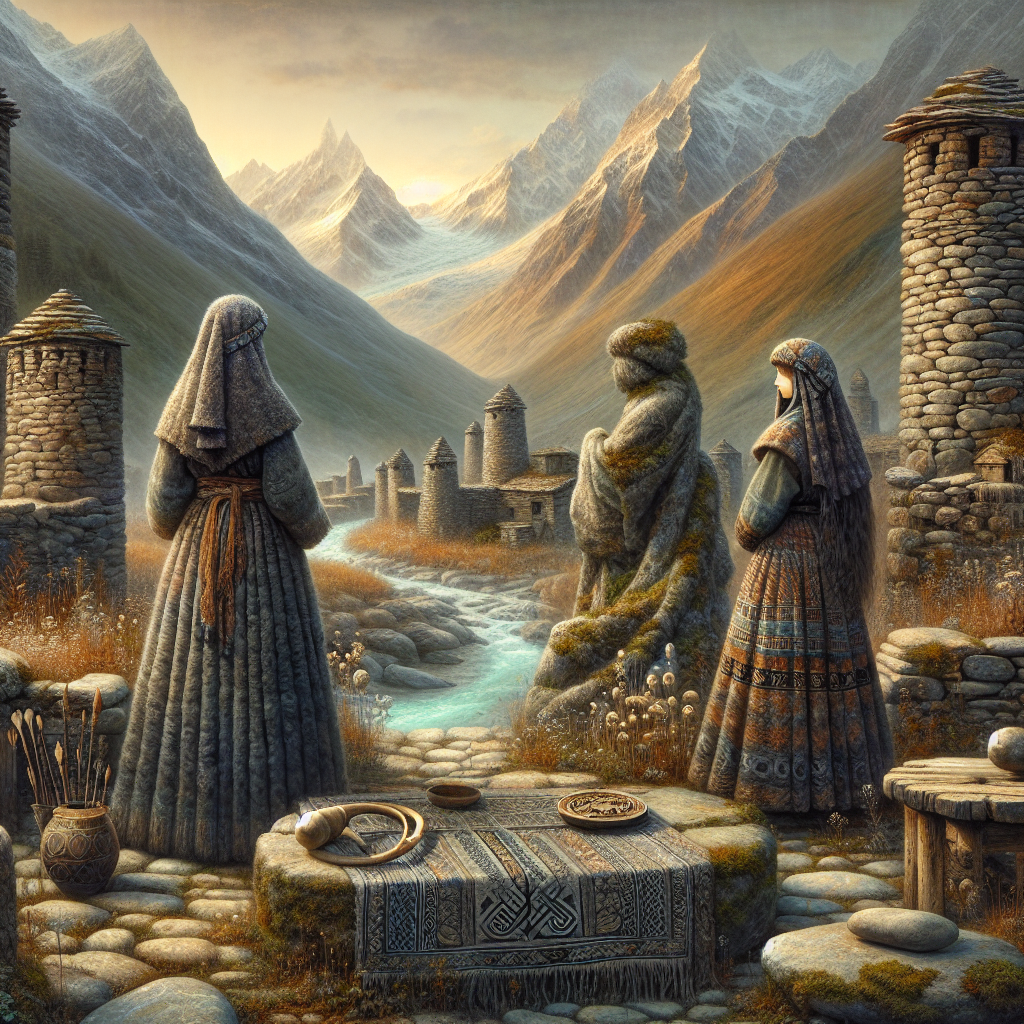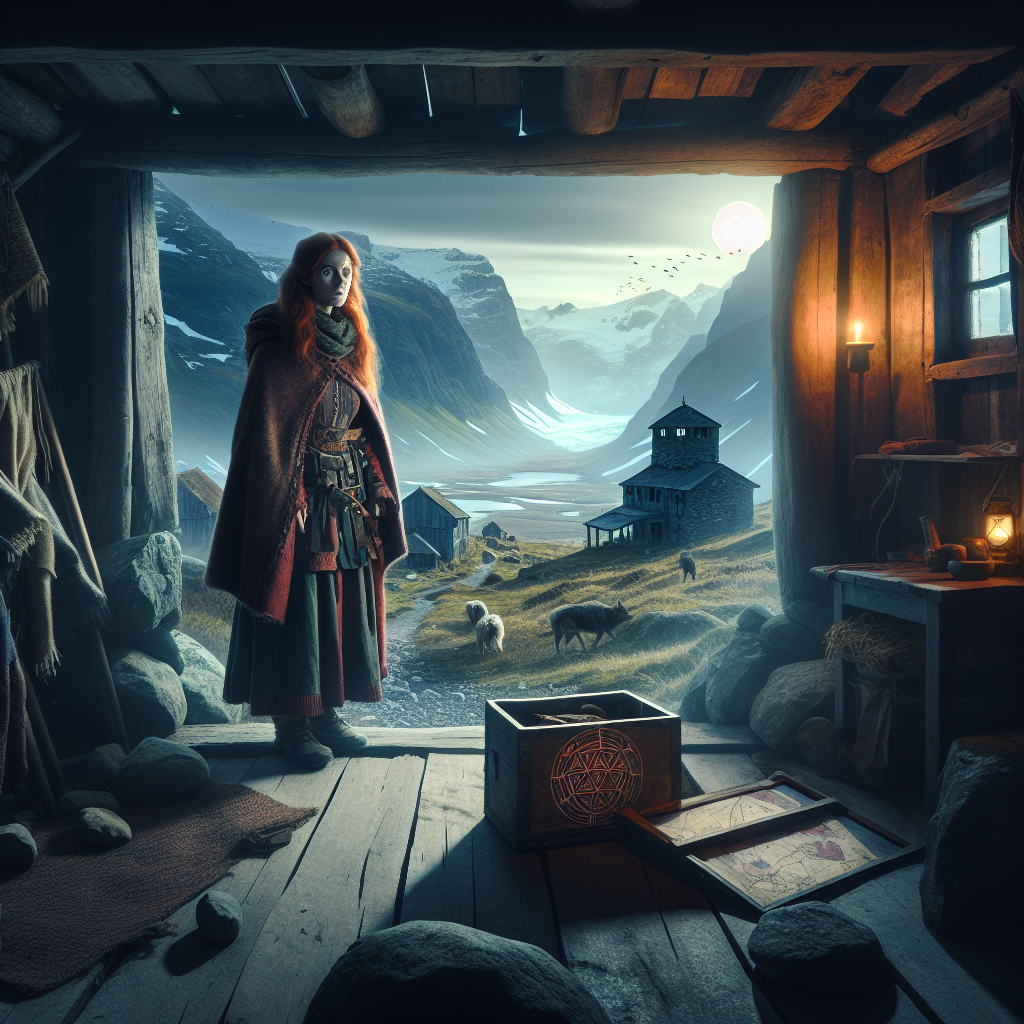
Barbra Dender, a red-haired, freckled 31-year-old traveler raised by her grandparents, arrives in the remote Svaneti region of Georgia, where medieval stone towers stand like sentinels beneath glaciers. Staying in a rustic guesthouse in Ushguli, she marvels at an eerie humming that slips between the towers when the wind rises, and she notices how their narrow windows and slanting shadows seem to form a pattern across the valley. Her host family—Mzia and her grandson Levan—offer warmth but guarded answers, hinting at old obligations. Driven by her instinct for unusual places, Barbra explores local churches, bridges, and boulder fields, collecting impressions and recording the tower-song on her phone. A shepherd warns her to leave the “sisters of stone” undisturbed. Back at the guesthouse, Levan secretly shows her a creaking floorboard that hides a century-stained tin. Inside lies a hand-drawn map, a sigil, and a riddle in Svan script implying that when the towers sing together, one should follow the short shadow of Queen Tamar to a fissure near the glacier. The chapter ends as Barbra realizes she has found her first clue and stares into the dark beyond the window, wondering who else might have been listening to the same song.
Barbra Dender had always trusted the quiet prickle at the back of her neck that told her when a place wasn’t done speaking. It whispered as the marshrutka coughed up the last switchback and rolled into the high green bowl of Upper Svaneti, the mountains closing around her like a secret cupped hand. She pressed her forehead to the window, red hair escaping its knot to paint soft flame against glass, freckles dusting the bridge of a nose she had never learned to love. At thirty-one, with legs tuned by long walks and a stubborn refusal to be afraid of solitude, she still traveled with the memory of her grandparents’ kitchen: cinnamon tea and lessons in how to belong to yourself.
She wore no makeup beyond a swipe of balm, tight jeans and blue-and-white Asics that trusted her feet as much as she trusted them, a thin tank top beneath the scuffed black leather jacket she’d bought in Thessaloniki and grown to adore on cold mornings. Svan towers rose in clusters along the slope, square and unblinking, their battered crowns like fists against the sky. Stone upon stone, their narrow windows cut to triangles and slots, whispered of sieges long past and families who had counted the mountains as siblings. The valley smelled of wet grass and snowmelt, the Enguri River dragging a pale ribbon through it, and beyond, glaciers sat like sleeping beasts.
Barbra stepped down, slung her worn canvas pack over one shoulder, and stretched until her spine sighed. She loved these arrivals in places where tourists were rumor and patience was currency, where nature and human stubbornness had arranged a truce that looked like stone. In Ushguli, where the road frayed into hoof tracks and laughter, she took a room in a guesthouse that was more family than business, more story than architecture. The house hunched low against wind, walls thick with whitewashed stone that held the day’s warmth into evening, and a porch strung with drying herbs that smelled of sage and something she couldn’t name.
Her host, Mzia, had a face like weathered birch bark and hands that made tea as if it were a sacrament; Levan, her grandson, skittered like a swallow between chores and questions. Barbra’s room had a small square window and a wooden chest painted with flowers that had once been bright; she folded her clothes with the tidy habits of a woman who had learned, very young, that no one else would do these small kindnesses for her. Back home, a glass wall cabinet held little trophies from other quests—bronze bead from a Carpathian market, a shard of green glass from a Black Sea beach, a pebble rubbed smooth by a mountain stream—and she wondered what shape this valley’s memory would take. Her first walk carried her up a goat path that braided itself between towers, each with its own tilt and temper, until the village lay behind her like a toy carved by someone with rough hands but a faithful eye.
The wind picked up, snapping at her jacket, and a sound threaded through it—thin, almost shy at first, then gathering into a note that held steady. She paused. The hum drew itself through the air like a bow on a glass rim, not from one place but many, and she turned slowly, listening. It seemed to breathe through the windows: narrow slits facing different directions, some choked with straw, others empty as open mouths.
She stood with her palm against the nearest tower’s flank, feeling the stone cold and sifted by centuries. The note rose and fell—not random, but purposeful in a way she could not pin down, and a shiver ran up her arms that was not from the cold. The afternoon sun slid toward the mountains, and shadows sharpened; lines extended from window to ground like ink marks, overlapping and crossing. She traced their endpoints with her eyes, noting how some seemed to lean toward the same point across the valley, an indistinct ridge where a glacier rode the shoulder of a peak.
It was like a diagram drawn in motion, visible only when wind and light agreed to speak. That evening, over a clay bowl of kubdari, the Svan meat pie crisped around spiced filling, she asked Mzia about the towers’ song. Mzia’s eyes flicked to the window, to where dusk weighed the line of roofs, and back again. “Wind finds what it needs,” she said, the words kneaded flat by time, “and the stone answers.
But not for tourists.” She said it without smile or sting, testing Barbra as women had tested her since she was a child running errands for grandparents who taught caution with kindness. Barbra swallowed warmth and offered her best coin: honesty. “I’m not a tourist,” she said. “I’m someone who listens.”
Levan slouched on the bench opposite, pretending not to listen while listening with everything he had.
He wore a woven belt with a repeating star pattern—eight points, like a compass rose—and Barbra filed the shape in the place where she kept useful details. On the shelf above the stove, a wooden icon leaned toward the room, edges finger-shiny, and beside it hung a cluster of iron keys the length of her palm. When Levan’s eyes flicked up and met hers, something quick crossed his face: a wanting to share, at war with a quicker fear. Barbra recognized it.
She had worn that look herself, once, when a secret pressed up against her teeth and begged to be let out. Morning found her in front of Lamaria, the old church crouched against a fold in the hill, its frescoes worn thin by a thousand breathless winter prayers. A cloth rustled in the doorway as a woman swept dust into a pan, and Barbra nodded greeting and stepped inside, letting the dim take hold. The scent of wax and old smoke layered with a chill that rode up from stone.
Outside, the wind gathered its skirts and ran between the towers, and the note returned—brighter now, as if the day had tuned it. She set her phone near the door and recorded, the slow scale of sound rising and slipping like someone practicing for the first time on an instrument only the valley remembered. She climbed to a vantage point where she could see the whole cluster of Ushguli like a scatter of dice cast by a giant. The sun inched, and the towers’ shadows crawled across fields, long fingers that reached and retracted.
When the long hand of the tallest tower, called by Levan “Tamar’s Crown,” touched the base of a smaller, the hum deepened to a new frequency that vibrated against her ribs. She sketched quickly, her pencil bright sparks on paper: tower positions, shadow lengths, timings. Twice, she checked the compass on her phone, and twice it wavered and refused to settle, as if the valley had its own idea of north. A shepherd named Tedo appeared as she sanded the edges of her drawing with her thumb, his coat patched with the practical indifference only mountain work can teach.
His dog slunk by his knee and watched Barbra with yellow eyes. “Wind tricks ears,” he said in Georgian, and when her halting reply won him a lift of an eyebrow, his mouth softened. “We call them sisters,” he added, nodding toward the towers. “Sisters, not to be angered.
They hold stories inside their stones, and stories are like bees—good honey if you leave them to their work, stings if you don’t.” He left her with that and a glance at the glacier that told her exactly where the best stings could be found. The Enguri sang its own lesson at the footbridge, planks worn thin by centuries of crossing above a pale, fast throat. There, Barbra found a boulder with grooves cut shallowly into its face, not by water but by hand—parallel lines and an eight-point star like the one on Levan’s belt. She pressed her fingertips into the grooves and found grit soft as ground bone, old work that had been touched by thousands of days.
The wind bent and the towers hummed, and when she stood back, the grooves aligned with three specific windows on three specific towers, making a line that went, like an arrow loosed from a memory, toward the fringe where ice began to think about sky. How had no one marked this on any map she had read? Back at the house, Mzia said little, but her silence had texture and edges; it wasn’t a refusal so much as a test of how long Barbra would keep asking. In the kitchen’s corner, a loom leaned against the wall, a half-woven rug paused mid-pattern, its colors saturated like berries crushed between fingers.
The rug’s central motif was that same star again, the eight points spooled with small knots that looked like fields or waves. After tea, Mzia left the room, and Levan hovered, quieting himself like a bird making its body into the shape of the branch. “You hear them,” he said finally, as if they were people. “Sometimes, there is more than sound.
Sometimes, they tell where to stand.” The boy’s eyes flicked to the door and back. “Come,” he added, a word that was as much request as command. He led her to the sleeping room she’d been given and knelt beside the wooden chest. Sun lit a scar in the floorboard where age had split it, and Levan slid his thin fingers into the gap to pry up a plank with a patient wiggle.
Beneath, wrapped in cloth that had once been white, lay a tin with a rusted lid. Barbra held her breath, not wanting to blow the moment away. Levan set the tin between them and opened it with more reverence than fear, and inside lay a scrap of paper folded down to the size of a matchbox and a smooth, black pebble worn to satin. The paper had been written on both sides, the ink browned to almost nothing, a careful hand that had known it would not be read easily.
One side held a sigil—a circle with the eight-point star at its center, ringed by three small marks and a shape like a window slit. The other held words in two scripts, Georgian and a tight, angular Svan, which Barbra could not read except for names she recognized by their density and familiarity: Tamar, Lamaria, Enguri. Levan tapped the star with his fingernail. “My grandmother says it is for the short day,” he murmured.
“At the short day, shadows are small. When the sisters sing together, follow the short shadow of Tamar’s Crown. Then you will find where the glacier listens.”
Barbra felt the room tilt a fraction, a click of alignment she recognized from the rare moments when a puzzle yielded. The wind outside worried the herbs on the porch, the towers hummed their once-secret note, and the map she had begun in her head closed a circuit.
The first clue had been there all along, in windows angled just so, in shadows rehearsed over centuries, in the patterns woven into belts and rugs. She lifted the pebble from the tin and turned it in her hand; its weight was unassuming, but the single line etched across it matched one groove on the boulder by the bridge. Somewhere above, where ice breathed slowly and the mountains counted time with glaciers instead of clocks, something had been listening for generations. As Barbra folded the paper and slid it back into its cloth, the hum deepened again, and she thought she felt more than heard a second line of tone braid through the first, as if someone—or something—had joined the choir, waiting to see if she would answer their call tonight?



